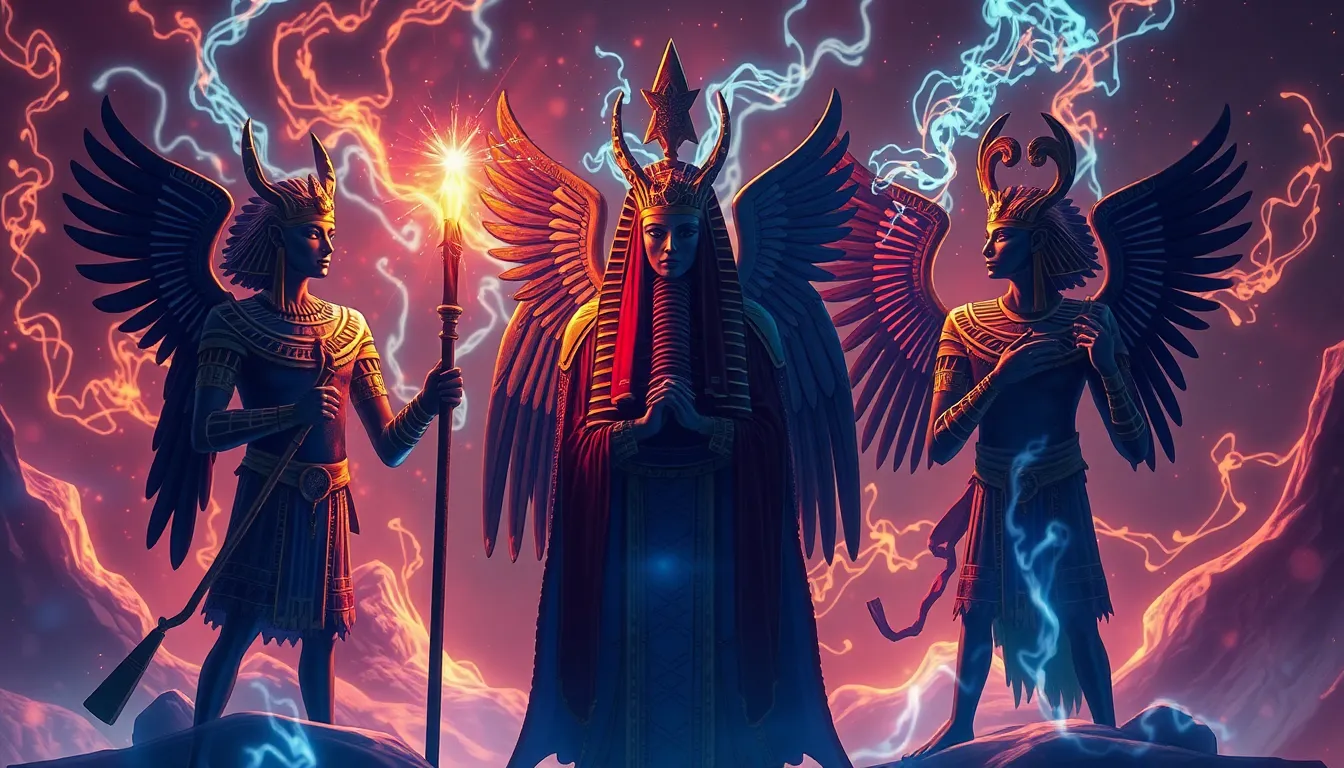The Role of Dreams: How Protective Deities Appeared in Egyptian Visions
I. Introduction
In ancient Egyptian culture, dreams were viewed as significant phenomena that bridged the gap between the earthly realm and the divine. They were not merely the byproducts of sleep but were seen as messages from the gods, offering guidance and insight into the future.
The importance of dreams permeated both religious and daily life in ancient Egypt. Dreams were often regarded as divine communications that could influence personal decisions, societal events, and even the fate of kingdoms. Within this framework, protective deities played a crucial role, appearing in visions to provide reassurance and guidance.
This article will explore the significance of dreams in ancient Egyptian culture, the key protective deities associated with these visions, and the interpretations and rituals surrounding dreams.
II. The Significance of Dreams in Ancient Egypt
Dreams served as a vital means of communication with the divine in ancient Egypt. They were considered portals through which gods could convey messages, warnings, or prophecies to mortals.
- Communication with the Divine: Dreams were believed to be sacred messages from the gods.
- Decision-Making: Important decisions, whether personal or political, were often guided by dreams.
- Prophecy: Dreams could foretell future events, offering insights that were pivotal in shaping actions.
Cultural beliefs surrounding dream interpretation were complex. Dream interpreters, often highly respected individuals, would analyze dreams to extract meaning and provide counsel. Various symbols and themes within dreams were cataloged and studied, leading to a rich tradition of dream interpretation.
III. Protective Deities in Egyptian Mythology
Protective deities held a significant place in Egyptian mythology, often embodying the qualities needed for safeguarding individuals and communities. Some of the most notable protective deities include:
- Bes: A dwarf god, Bes was known for his protective role, particularly over households and childbirth.
- Taweret: Often depicted as a hippo, Taweret was the goddess of fertility and childbirth, known to protect mothers and children.
- Isis: A powerful goddess associated with magic, motherhood, and protection, Isis was revered for her role in safeguarding the living and the dead.
These deities symbolized safety, nurturing, and guidance, playing a crucial role in the lives of the ancient Egyptians. Worship of these deities was not only a religious duty but also a source of comfort and assurance in times of uncertainty, particularly during sleep and in dreams.
IV. Dream Narratives and Their Interpretations
Recorded dream narratives in ancient Egyptian texts reveal a wealth of information about the cultural significance of dreams. Dreams were often chronicled in texts like the “Dream Book,” where dreamers would seek interpretations to understand their meanings and implications.
Common themes and motifs involving protective deities often included:
- Visions of guidance and reassurance from deities.
- Warnings about impending danger or misfortune.
- Encounters with deceased loved ones, often mediated by protective deities.
Case studies of famous dreams, such as those experienced by pharaohs, illustrate the implications of divine messages. For instance, the dreams of Pharaoh Thutmose IV, which involved the god Amun, led to significant political and religious reforms following his interpretation.
V. Rituals and Practices Surrounding Dreams
To invoke dreams and connect with protective deities, ancient Egyptians engaged in various rituals and practices. Techniques included:
- Dream Incubation: This involved sleeping in a sacred space to receive divine messages through dreams.
- Offering Prayers: Individuals would offer prayers and sacrifices to deities before sleep to seek protection and insight.
- Use of Amulets: Wearing amulets depicting protective deities was common to ensure safety during sleep.
In ancient society, priests and dream interpreters played pivotal roles in ritual practices. They were responsible for facilitating communication with the divine, interpreting dreams, and performing protective rituals to safeguard individuals during sleep.
VI. The Psychological and Spiritual Dimensions of Dreams
The psychological impact of dreams in ancient Egypt was profound, as dreams were seen as reflections of the soul’s journey and the mind’s concerns. The spiritual significance of receiving messages from protective deities fostered a sense of connection to the divine, enhancing the belief that one was never alone.
This interplay between dreams and mental health was crucial. Dreams could provide comfort in times of anxiety, serving as a therapeutic outlet that reinforced the belief in divine protection. The act of interpreting and understanding dreams also allowed individuals to confront their fears and aspirations.
VII. Legacy of Egyptian Dream Interpretations
The influence of Egyptian dream interpretation extends beyond the ancient world, impacting later cultures and civilizations. The traditions of dream analysis and the significance of protective deities can be seen in various spiritual practices across the globe.
Today, the legacy of protective deity worship continues in modern spiritual practices, where individuals still seek guidance through dreams and invoke protective figures for safety and clarity.
In contemporary understanding, dreams remain a fascinating area of exploration, bridging the realms of psychology and spirituality. The integration of dreams into spiritual practices is prevalent, emphasizing the timeless nature of this ancient belief.
VIII. Conclusion
In summary, dreams and protective deities held immense importance in ancient Egyptian culture, serving as conduits for divine communication and guidance. The enduring fascination with dreams across cultures reflects a universal human desire to seek understanding and reassurance from the unseen.
As we continue to explore the significance of dreams in our lives, integrating the wisdom of ancient practices can enrich our spiritual journeys and deepen our connection to the divine.




